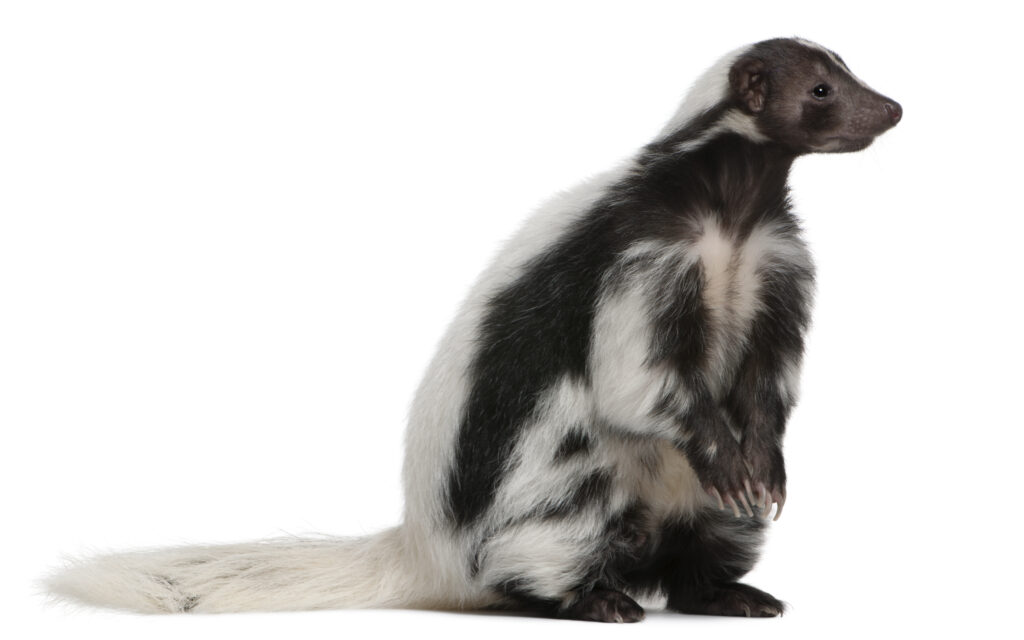Year after year, skunks appear in backyards and yards sporting long fur. Yet, sometimes the only explanation people have for a skunk showing up is that it’s lost or abandoned. Skunks do not hibernate in order to survive the winter as some might believe. In fact, they an incredibly hearty animal who will often find ways to stay warm during the cold months of winter that can be just as difficult as jumping into a burrow and sealing themselves off from predators. Yes, like all other mammals, skunks are susceptible to deadly cold, but they don’t sit around waiting for it to come their way with open paws.
What do Skunks really eat during the winter?
There are many misconceptions about what animals do to survive the winter. Some people believe that skunks hibernate, but this is not true. So, what do skunks really eat during the winter?
Most skunks are omnivorous, which means they eat both plants and animals. In the wild, their diet consists of invertebrates like worms and insects, small vertebrates like rodents and birds, and fruits and vegetables. During the winter months, their diet doesn’t change much. They still eat invertebrates and small vertebrates, but they also eat more plant material because there is less food available.
Skunks will often forage in garbage cans and dumpsters for food during the winter months. This is why it’s important to secure your trash cans so that they can’t get into them. If you live in an area where there are a lot of skunks, you may also want to consider getting a dog that can help keep them away from your property.
Are there any other animals besides skunks that hibernate or enter into estivation during the cold months?
There are several other animals that engage in either hibernation or estivation to survive the cold months. Bears are one such example; these animals will typically enter into a deep sleep during the winter months and wake up again when spring arrives. Other animals that may enter into estivation include ground squirrels, chipmunks, and bats.
How do they survive without food and water?
As the weather gets colder, animals need to find ways to stay warm and conserve energy. For some animals, this means hibernating through the winter. But what about skunks? Do skunks hibernate to survive the winter?
The short answer is no, skunks do not hibernate. But how do they survive without food and water for months at a time?
Skunks are able to survive the winter by entering into a state of torpor. Torpor is a state of reduced physiological activity in which an animal’s metabolism slows down and body temperature decreases. This allows skunks to conserve energy and survive on much less food and water than they would need if they were active.
Skunks typically enter into torpor in late fall and early winter when food is scarce and temperatures are low. They will remain in this state until spring when conditions are more favourable for finding food and water.
